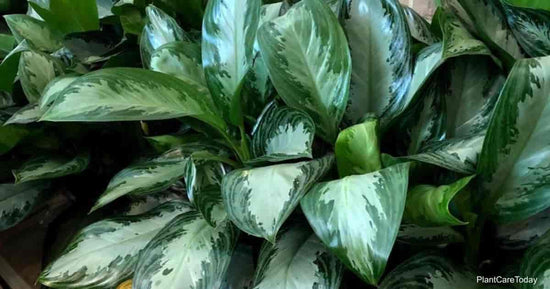The Growing Season spans early Spring through early Fall and is the best time to maximize your plant’s growth through routinely fertilizing the soil. Plants need many of the same nutrients we receive from our food, like Nitrogen, Phosphorus, Potassium, and Magnesium. Luckily, there are easy ways to create homemade, natural fertilizers by repurposing some of our everyday kitchen waste.
Fast-growers like the Golden Pothos and Philodendron Brasil tend to show bigger leaves and longer vines when regularly treated with natural fertilizers, while the Fiddle Leaf Fig becomes fuller with regular treatment. Maintaining the soil’s nutrients during the growing season will also help plants grow stronger and healthier, building their resistance to stress and disease. Banana Water, Rice Water, and Eggshell Water are some of our favorite natural fertilizers and can be applied monthly while watering without the risk of over-fertilizing.
You don’t need to be an experienced plant parent to begin incorporating it into your care routine. We’re here to make it simple and approachable. Follow the steps below to make Banana Water, Rice Water, or Eggshell Water fertilizer. We recommend using monthly when watering with water that has been left out overnight, free of harsh minerals. Also, note that recently potted plants should wait about two months to settle before treating with fertilizer.
Banana Water
Great for adding Potassium, which builds its health, strength, and resistance to disease and drought.
Supplies:
- A Jar With Lid
- 1-2 Ripe Banana Peels, cut or whole
- Filtered, Distilled, or Spring Water
Steps:
- Place a ripe banana peel in a mason jar of water.
- Seal and let it sit for about 2 days.
- Dilute with 1 part banana water and 3 parts non-tap water in your watering can and feed directly into the soil.
Note: Banana Water is most effective when used right away and should not be stored.
Tip: You can also dehydrate your banana peels in the oven and crush them to feed directly into the soil.
Rice Water
Great for adding Nitrogen, Phosphorus, Potassium in addition to healthy bacteria and sugars. Different rice types have varying nutrient values but any type would be beneficial for your plants! Mix it up with whatever you have on hand.
Supplies:
- A Jar With Lid
- Rice (Any Type, 1+ cups)
- Filtered, Distilled, or Spring Water
Steps:
- Soak your dry rice in water for about 20-30 minutes. Drain into jar.
- Use immediately by diluting into your watering can (1:3) or leave sealed for 3-5 days before using.
- Can be stored in a sealed jar at room temperature for up to 5 days.
Tip: Rice Water is also great for use on hair and skin! The same steps and storage apply.
Eggshell Grounds
Great for adding Calcium, which builds healthy cells in the plant and balances overly acidic soil. You can also grind eggshells into a fine powder to work directly into your soil by following these steps here.
Supplies:
- A Jar With Lid
- Eggshells (6+, or as many as you can collect at a time)
- Filtered, Distilled, or Spring Water
Steps:
- Wash and sanitize your eggshells in the oven at 350º or boil for 5 minutes.
- Dry and lightly crush eggshells using a wooden utensil, mortar & pestle bowl, or blender.
- Place eggshells in a jar.
- Add boiling water.
- Let the water cool.
- Strain water to remove eggshells.
- Dilute (1:3) in your watering can and feed directly into soil.
Tip: Nutrients come in small amounts in eggshells, so rinsing and collecting them in a bowl to dry throughout the month will allow you to make the most effective eggshell water.
Tea Water
Tea water offers plants plenty of nitrogen - one of the key minerals they require for bold green leaves. Simply steeping them for a few days will give your plants the boost they need.
Supplies:
- A Jar With Lid
- 2-3 Green Tea bags (no flavors or additives)
- Filtered, Distilled, or Spring Water
Steps:
- Place your tea bags in a clean jar.
- Fill with non-tap water and seal.
- Allow it to steep for 2-3 days out of direct sunlight.
- Dilute (1:3) into your watering can and feed directly into your soil.
It is recommended to use right away.
Note: Any tea type will work, however black teas can cause soil to be very acidic. Always avoid teas that have been used with honey, sugar, milks, or additives.
-----
Let us know when you've made yours at @groun.ded!





